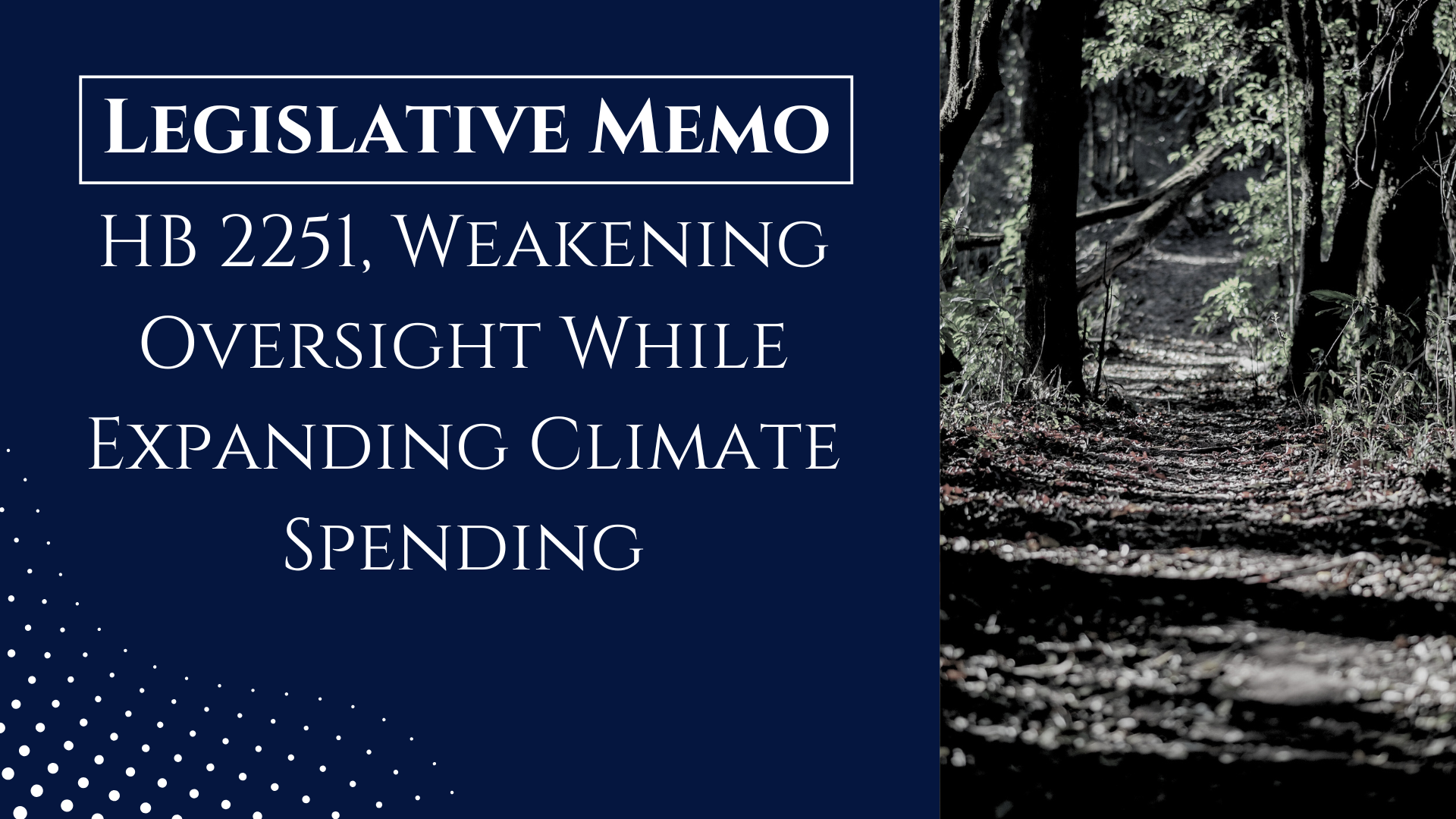The state’s new tax on CO2 emissions increases energy prices. That is the ruling from the members of the Washington Utilities and Transportation Commission (UTC) in a recent rate increase for natural gas. It directly contradicts the claims of Governor Inslee, staff at the Department of Ecology, and legislators who claimed the impact would be small or, absurdly, might even cause prices to go down.
That, however, may be the least interesting part about the UTC’s order. Despite that admission, UTC commissioners went to lengths to hide that reality from the public.
The ruling is one of the most brazenly dishonest decisions I’ve ever seen.
On August 3, the three members of the UTC (who are appointed by Governor Inslee) approved a request by Puget Sound Energy to cover increased natural gas costs from the state’s new tax on CO2 emissions, known as the Climate Commitment Act (CCA) or Cap and Invest. The commissioners noted that the increase of just over three percent on customer bills will cover the “costs of allowances PSE needs to comply with the Cap and Invest Program.” Puget Sound Energy serves about 800,000 customers in six counties.
The fact that the UTC specifically admits the CCA increases prices is notable and contradicts the claim by Department of Ecology staff that adding a tax on CO2 emissions would reduce natural gas prices.
Last summer, Ecology’s Air Quality Program Manager Kathy Taylor sent a letter to Senator Shelly Short claiming that at an allowance price of $41 per metric ton of CO2, the price of “natural gas would decrease by about 1 percent.” How anyone would believe that increasing taxes could reduce prices is unclear, but the UTC has very clearly stated that the CCA increases natural gas prices.
In just over a year, virtually every claim made by the Department of Ecology about the cost impact of the tax on CO2 emissions has been proven inaccurate by real-world prices or by members of the Inslee Administration itself.
Notably, even left-wing activist groups like Climate Solutions and the Northwest Energy Coalition say the CCA increases prices. In their comment to the UTC, they wrote, “we accept that the CCA will have rate impacts.” This is stark contrast to their recent public statements on the price impact of the CCA on gasoline prices. In public statements, Climate Solutions blames oil companies for price increases, but in a regulatory proceeding, they quietly admit that the increases are driven by the CCA.
Put simply, the UTC commissioners and even environmental activists agree the CCA is increasing prices and Puget Sound Energy can pass along a portion of those costs to its customers.
The UTC commissioners then took one more extraordinary step: they made it illegal for PSE to tell their customers why their rates went up.
In a remarkably brazen decision, the UTC commissioners wrote, “we agree with Public Counsel that PSE should not include the proposed ‘carbon reduction charge’ as a line item on customer bills.” What reason did they cite for hiding their decision from customers whose bills have increased? They say it would be confusing. “Public Counsel correctly observes that including all program charges on customer bills would quickly result in lengthy and confusing bills.”
It gets worse.
The “Public Counsel” referenced by the UTC commissioners is Nina Suetake, who works in the Office of the Attorney General. The job of Public Counsel is to represent ratepayers at utilities hearings. Suetake previously worked at TURN, a California advocacy group who lists their top priority as creating “Energy Equity & Climate Justice.”
In her letter to the UTC, purportedly on behalf of the public, she wrote, “Public Counsel is also concerned with PSE’s proposal to itemize the State Carbon Reduction Charge and State Carbon Reduction Credit on customer bills.” Echoing the comments of environmental groups, she went on to write that, “If all program-specific charges were included as line items, customer bills would quickly become incomprehensible.” The person whose job it is to represent the public actually opposes showing the increased costs to the public.
This is not only dishonest but violates the spirit of Washington’s laws and constitution. In RCW 42.56.030, Washington law notes, “The people of this state do not yield their sovereignty to the agencies that serve them. The people, in delegating authority, do not give their public servants the right to decide what is good for the people to know and what is not good for them to know.”
To the contrary, the position of the Public Counsel in the Attorney General’s office is that they know what the public should know and what they shouldn’t. The claim that transparency is bad for the public is remarkable and revealing.
Both the Public Counsel and the UTC commissioners even claimed that bad news should be hidden from customers.
The UTC ruling says, “only those charges or credits that inure to the benefit of customers should be included as line items on customer bills.” Bad news – like cost increases – shouldn’t be put on bills where customers can see them. Only good news is allowed. The members of the UTC openly admit they are intentionally hiding anything the public might not like.
If that wasn’t enough, it gets even worse. After complaining that adding items to customer bills is too confusing, the UTC commissioners then required PSE to add a line to customers’ bills.
Low-income families receive a “carbon reduction credit” to help offset the increase in the bill from the tax on CO2 emissions. Some PSE customers will now see a credit but won’t realize that the credit doesn’t reduce their bill, but simply offsets an increase that isn’t listed. This is intentionally misleading, making people feel like the CCA is reducing their bill when, in fact, it is (at best) keeping their bill the same. For all the talk about avoiding confusion, the UTC is purposefully confusing customers about what they are paying.
The justification for this is that it will “signal an economic incentive for customers to reduce their own carbon emissions.” This is absurd. If anything, listing the credit shows there is no cost for those families. The only thing that would provide an incentive would be to show the increased cost of using natural gas, the very thing the UTC prohibited.
On its web page, the UTC claims its job is to “protect the people of Washington...” This ruling shows that commissioners feel that they, not the people of Washington, get to decide what that means.
In 1897, Sam Insull, the creator of one of the first electric utilities in the nation, proposed creating a government entity to oversee utility rates and guarantee a profit to his utility. The assumption was that regulators would look out for the public. Today it is hard to argue that regulators are still representing the public rather than their own political agendas.
Thanks to technology, utility customers have more ability to look out for their own interests. Utilities across the country are providing more direct information to consumers, working with them to provide reliable electricity in a way that is transparent and affordable.
It is time to put power in the hands of consumers rather than pretending that regulators and the “Public Counsel” in the Office of the Attorney General will take care of them. This recent rate case makes it clear the system created in 1897 is no longer working.






